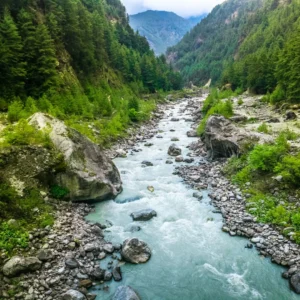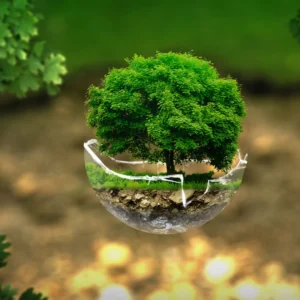IELTS Vocabulary Environment
Improve your IELTS Band Score by mastering key vocabulary related to environmental issues. This topic commonly appears in IELTS Writing Task 2, Speaking Part 3, and Reading passages. In this guide, you’ll learn important environment-related words with meanings, examples, and tips to use them naturally in your exam.
Why “Environment” Matters in IELTS
Environmental issues are among the most frequent and relevant topics in the IELTS exam. You may be asked to:
Write an essay on climate change or pollution.
Describe a clean or polluted place in your hometown.
Express your opinion about sustainable practices.
Having a rich vocabulary helps you avoid repetition and sound more academic and fluent.
Pollution & Climate Change
Pollution is one of the most commonly discussed environmental problems in IELTS essays and speaking. You can talk about air pollution, water pollution, or even noise pollution depending on the context.
🗣 “Air pollution in urban areas is increasing due to heavy traffic and industrial activities.”
Another hot topic is climate change, which refers to long-term shifts in temperatures and weather patterns, mainly caused by greenhouse gases.
🗣 “Climate change has become one of the most pressing challenges faced by humanity today.”
If you want to sound more advanced, use global warming when referring specifically to the rise in Earth’s temperature.
🔥 Words for Environmental Problems
When describing causes and consequences, use these:
Deforestation – cutting down trees on a large scale.
“Deforestation leads to loss of biodiversity and changes in the ecosystem.”
Overconsumption – using too many natural resources.
“Modern lifestyles encourage overconsumption, which is not sustainable in the long run.”
Environmental degradation – when the environment becomes damaged or less healthy.
“Unchecked industrial growth contributes to environmental degradation.”
Habitat destruction – when animals lose their natural home.
“Habitat destruction is the primary reason for the extinction of many species.”
🌱 Positive Solutions & Green Practices
To balance your vocabulary, also learn words that describe solutions and eco-conscious behavior:
Sustainable – something that can be maintained without harming the environment.
“We need to adopt sustainable farming methods.”
Renewable energy – sources like solar, wind, or hydro that don’t run out.
“Investing in renewable energy is crucial to reduce our dependence on fossil fuels.”
Green energy – another way to refer to clean, eco-friendly energy sources.
“Green energy can power our homes without polluting the planet.”
Recycling – turning waste into usable material again.
“Recycling is one of the easiest ways individuals can help protect the environment.”
Compost – decomposed organic matter used as fertilizer.
“Food scraps can be composted instead of sent to landfills.”
📉 Talking About Human Impact
To show higher-level language, use these to describe human behavior and its environmental cost:
Carbon footprint – the total greenhouse gases emitted by an individual or activity.
“Flying frequently can significantly increase your carbon footprint.”
Carbon emissions – gases like CO₂ released from vehicles, factories, etc.
“The government is planning stricter regulations on carbon emissions.”
Fossil fuels – traditional energy sources like coal and oil.
“Fossil fuels are the main contributors to air pollution.”
Carbon-neutral – producing no net carbon emissions.
“Some companies aim to become carbon-neutral by 2030.”
🌸 Vocabulary for Describing Nature
Biodiversity – the variety of plant and animal life in an area.
“The rainforest is home to immense biodiversity.”
Ecosystem – a community of living organisms interacting with their environment.
“Oil spills can severely damage marine ecosystems.”
Natural resources – materials from nature like water, coal, forests.
“We must manage our natural resources wisely.”
Ozone layer – a protective layer in the Earth’s atmosphere.
“The ozone layer shields us from harmful ultraviolet rays.”
Conservation – protecting and preserving natural environments.
“Wildlife conservation is vital to maintaining ecological balance.”
📝 Quick Tips for Using These Words in IELTS
Don’t just memorize words — learn how to use them in context.
Practice forming sentences, examples, and opinions with these terms.
Try using collocations like:
“combat climate change”
“reduce one’s carbon footprint”
“sustainable development goals”
Top 25 IELTS Environment Vocabulary Words
| Word | Meaning | Example |
|---|---|---|
| Pollution | Contamination of natural environment | Air pollution in cities is a major concern. |
| Climate change | Long-term change in global weather patterns | Climate change is causing rising sea levels. |
| Global warming | Increase in Earth’s temperature due to greenhouse gases | Global warming leads to melting glaciers. |
| Deforestation | Clearing forests for non-forest use | Deforestation affects biodiversity. |
| Sustainable | Able to be maintained without harming the environment | We need sustainable energy sources. |
| Renewable energy | Energy from sources that naturally replenish | Wind and solar are renewable energy sources. |
| Carbon footprint | Total greenhouse gas emissions caused by one’s actions | Flying frequently increases your carbon footprint. |
| Ecosystem | Community of living organisms interacting with environment | Pollution disrupts the marine ecosystem. |
| Greenhouse gases | Gases that trap heat in the atmosphere | CO₂ is a major greenhouse gas. |
| Recycling | Reusing waste material to make new products | Recycling reduces landfill waste. |
| Conservation | Protecting natural resources | Wildlife conservation is vital for future generations. |
| Biodiversity | Variety of life in a particular habitat | Deforestation threatens biodiversity. |
| Sustainability | The ability to continue without depleting resources | Sustainability should be at the core of development. |
| Fossil fuels | Coal, oil, and gas derived from ancient organisms | Fossil fuels are a major source of pollution. |
| Eco-friendly | Not harmful to the environment | Eco-friendly packaging is gaining popularity. |
| Overconsumption | Excessive use of natural resources | Overconsumption leads to environmental degradation. |
| Carbon emissions | Release of carbon dioxide into the air | Industries are reducing carbon emissions. |
| Natural resources | Materials from nature used by humans | Water is a vital natural resource. |
| Green energy | Environmentally friendly energy | Green energy is key to a sustainable future. |
| Landfill | Site for waste disposal | Plastics fill up landfills quickly. |
| Compost | Organic material decomposed for fertilizing soil | Food waste can be turned into compost. |
| Ozone layer | Protective layer in Earth’s atmosphere | The ozone layer protects us from UV rays. |
| Environmental degradation | Deterioration of the environment | Rapid industrialization leads to environmental degradation. |
| Habitat destruction | Elimination of natural habitats | Logging results in habitat destruction. |
| Carbon-neutral | No net release of CO₂ | Electric vehicles aim to be carbon-neutral. |
IELTS Writing Task 2 Sample Paragraph for Topic Environment
Topic: Some people believe that individuals can do little to protect the environment, while others think they can make a big difference.
Sample Answer:
While large-scale efforts by governments and corporations are crucial, individuals also have a significant role to play. Simple actions like recycling, reducing carbon footprint, and using renewable energy sources contribute towards environmental conservation. Overconsumption of natural resources and reliance on fossil fuels have led to environmental degradation, and every small eco-friendly habit can help mitigate this.
IELTS Speaking Sample Answer (Part 3) for Topic Environment
Q: What are some major environmental problems today?
A: One of the most serious problems is climate change, which results from greenhouse gas emissions. Global warming, caused by excessive use of fossil fuels, is melting ice caps and raising sea levels. Deforestation and loss of biodiversity are also concerning. To address these, we need to promote green energy and reduce our carbon footprint.
IELTS Environment Topic Reading Passages
Environmental Medicine IELTS Reading Answers
Tips to Use Environment Vocabulary Effectively
- Use collocations like:
- “tackle climate change”
- “promote sustainable development”
- “reduce carbon emissions”
- Avoid basic words like bad, good, problem – use academic terms like degradation, challenge, threat.
- Practice using these in mock speaking/writing tasks.





